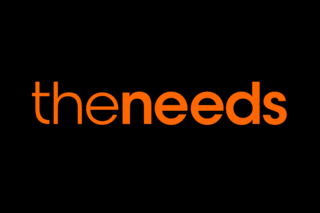Internet research is the practice of using Internet information, especially free information on the World Wide Web, or Internet-based resources in research.

Collaborative filtering (CF) is a technique used by recommender systems. Collaborative filtering has two senses, a narrow one and a more general one.
A recommender system, or a recommendation system, is a subclass of information filtering system that provide suggestions for items that are most pertinent to a particular user. Typically, the suggestions refer to various decision-making processes, such as what product to purchase, what music to listen to, or what online news to read. Recommender systems are particularly useful when an individual needs to choose an item from a potentially overwhelming number of items that a service may offer.

A search engine is a software system that finds web pages that match a web search. They search the World Wide Web in a systematic way for particular information specified in a textual web search query. The search results are generally presented in a line of results, often referred to as search engine results pages (SERPs). The information may be a mix of hyperlinks to web pages, images, videos, infographics, articles, and other types of files. Some search engines also mine data available in databases or open directories. Unlike web directories and social bookmarking sites, which are maintained by human editors, search engines also maintain real-time information by running an algorithm on a web crawler. Any internet-based content that cannot be indexed and searched by a web search engine falls under the category of deep web.
Product finders are information systems that help consumers to identify products within a large palette of similar alternative products. Product finders differ in complexity, the more complex among them being a special case of decision support systems. Conventional decision support systems, however, aim at specialized user groups, e.g. marketing managers, whereas product finders focus on consumers.
Google Personalized Search is a personalized search feature of Google Search, introduced in 2004. All searches on Google Search are associated with a browser cookie record. When a user performs a search, the search results are not only based on the relevance of each web page to the search term, but also on which websites the user visited through previous search results. This provides a more personalized experience that can increase the relevance of the search results for the particular user. Such filtering may also have side effects, such as the creation of a filter bubble.
Social search is a behavior of retrieving and searching on a social searching engine that mainly searches user-generated content such as news, videos and images related search queries on social media like Facebook, LinkedIn, Twitter, Instagram and Flickr. It is an enhanced version of web search that combines traditional algorithms. The idea behind social search is that instead of ranking search results purely based on semantic relevance between a query and the results, a social search system also takes into account social relationships between the results and the searcher. The social relationships could be in various forms. For example, in LinkedIn people search engine, the social relationships include social connections between searcher and each result, whether or not they are in the same industries, work for the same companies, belong the same social groups, and go the same schools, etc.
An information filtering system is a system that removes redundant or unwanted information from an information stream using (semi)automated or computerized methods prior to presentation to a human user. Its main goal is the management of the information overload and increment of the semantic signal-to-noise ratio. To do this the user's profile is compared to some reference characteristics. These characteristics may originate from the information item or the user's social environment.
Expertise finding is the use of tools for finding and assessing individual expertise. In the recruitment industry, expertise finding is the problem of searching for employable candidates with certain required skills set. In other words, it is the challenge of linking humans to expertise areas, and as such is a sub-problem of expertise retrieval.
Jinni was a website-based search engine and recommendation engine for movies, TV shows and short films. The service was powered by the Entertainment Genome, an approach to indexing titles based on attributes like mood, tone, plot, and structure. As of 2015, it was no longer available to the public, but is reportedly available via API and business-to-business licensing, where it reportedly impacts businesses like Comcast's Xfinity product, as well as other businesses using "smart" entertainment search.
Personalcasting, or personalized digital television (PDTV), is an application that uses news-on-demand algorithms to deliver tailored broadcast news on a wide range of computing platforms including mobile phones and PDAs. Unlike podcasting, which is a series of digital media files that are typically downloaded through web syndication, personalcasting automatically indexes, clusters and extracts information from news sources.
Discoverability is the degree to which something, especially a piece of content or information, can be found in a search of a file, database, or other information system. Discoverability is a concern in library and information science, many aspects of digital media, software and web development, and in marketing, since products and services cannot be used if people cannot find it or do not understand what it can be used for.
MovieLens is a web-based recommender system and virtual community that recommends movies for its users to watch, based on their film preferences using collaborative filtering of members' movie ratings and movie reviews. It contains about 11 million ratings for about 8500 movies. MovieLens was created in 1997 by GroupLens Research, a research lab in the Department of Computer Science and Engineering at the University of Minnesota, in order to gather research data on personalized recommendations.
Personalized search refers to web search experiences that are tailored specifically to an individual's interests by incorporating information about the individual beyond the specific query provided. There are two general approaches to personalizing search results, involving modifying the user's query and re-ranking search results.

The Echo Nest is a music intelligence and data platform for developers and media companies. Owned by Spotify since 2014, the company is based in Somerville, MA. The Echo Nest began as a research spin-off from the MIT Media Lab to understand the audio and textual content of recorded music. Its creators intended it to perform music identification, recommendation, playlist creation, audio fingerprinting, and analysis for consumers and developers.

A filter bubble or ideological frame is a state of intellectual isolation that can result from personalized searches. Personalized searches utilize website algorithms to selectively curate search results based on information about the user, such as their location, past click-behavior, and search history. Consequently, users become separated from information that disagrees with their viewpoints, effectively isolating them in their own cultural or ideological bubbles, resulting in a limited and customized view of the world. The choices made by these algorithms are only sometimes transparent. Prime examples include Google Personalized Search results and Facebook's personalized news-stream.

Facebook Graph Search was a semantic search engine that Facebook introduced in March 2013. It was designed to give answers to user natural language queries rather than a list of links. The name refers to the social graph nature of Facebook, which maps the relationships among users. The Graph Search feature combined the big data acquired from its over one billion users and external data into a search engine providing user-specific search results. In a presentation headed by Facebook CEO Mark Zuckerberg, it was announced that the Graph Search algorithm finds information from within a user's network of friends. Microsoft's Bing search engine provided additional results. In July it was made available to all users using the U.S. English version of Facebook. After being made less publicly visible starting December 2014, the original Graph Search was almost entirely deprecated in June 2019.
Sparrho combines human and artificial intelligence to help research professionals and layman users stay up-to-date with new scientific publications and patents. Sparrho's recommendation engine provides personalized scientific news-feeds by using proprietary machine learning algorithms to "aggregate, distill and recommend" relevant content. The platform aims to complement traditional methods of finding relevant academic material such as Google Scholar, and PubMed with a system which enables the serendipitous discovery of content and across relevant scientific fields.

Theneeds is an online and mobile search engine that helps its users discover articles, news, videos, social posts, and other media tailored to their specific interests.
Matrix factorization is a class of collaborative filtering algorithms used in recommender systems. Matrix factorization algorithms work by decomposing the user-item interaction matrix into the product of two lower dimensionality rectangular matrices. This family of methods became widely known during the Netflix prize challenge due to its effectiveness as reported by Simon Funk in his 2006 blog post, where he shared his findings with the research community. The prediction results can be improved by assigning different regularization weights to the latent factors based on items' popularity and users' activeness.





